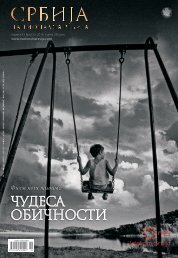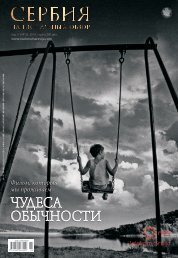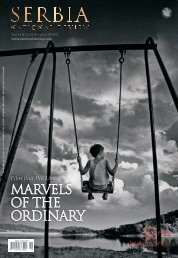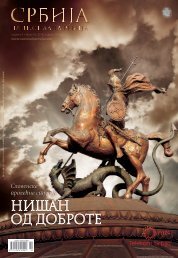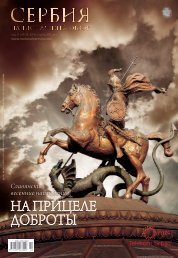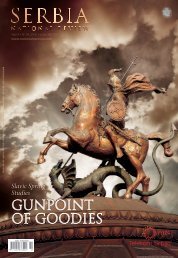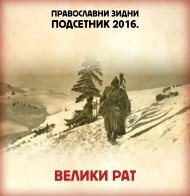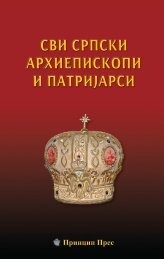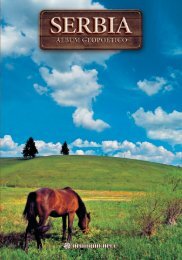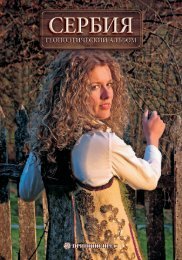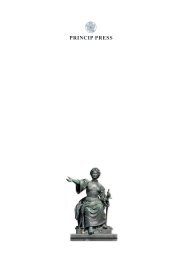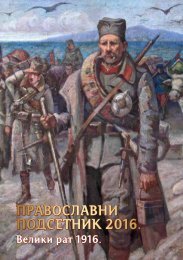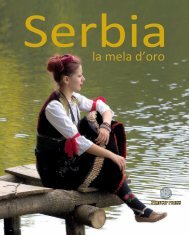Monografija - prvo izdanje - niska rezolucija
Create successful ePaper yourself
Turn your PDF publications into a flip-book with our unique Google optimized e-Paper software.
Military courage and<br />
civilian cowardice<br />
A spirit of army and bravery in Serbs is ingrained, naturally, in the<br />
A earliest childhood: to a four-year-old boy, who has just learned how<br />
to walk, his mother repeats that he has to be a hero, not to cry when beaten<br />
but to try and take revenge, and thus the boy, in child’s fight, takes a stone<br />
and waits for his enemy, without crying. That kind of spirit the fathers<br />
teach their children, in the form of the church catechism, the history of the<br />
fall of the Serbian Empire in the field of Kosovo, emphasising especially<br />
that to Miloš Obilić belongs the glory of all times, to Vuk Branković – the<br />
curse, and that the Turks and Germans – should have their heads cut off.<br />
In one word, the inclination toward military life is not in the essence<br />
of the Serbian people, but the people are brought up in a military<br />
spirit for the reason of the necessity to keep this spirit alive because of<br />
the external circumstances, especially the instability of the territorial and<br />
political relations of Serbia.<br />
Of course, a development of the country in the sense of the civic<br />
state is disturbed by such a position. Because of this, and even with the<br />
military courage of the Serbs, you won’t come across an adequate amount<br />
of elements of civic bravery.<br />
Beneath an external cover of civilisation, appear very harsh customs<br />
that demand punishment and vengeance, that humiliate a woman<br />
to the level of a worker who is given by ones and taken by others, never<br />
taking care about her wishes. There are many people whose life goal is<br />
enjoyment, that is, delight in life, but in the narrowest material sense.<br />
And the antidote for this is found in many phenomena of contemporary<br />
life of the Serbian people, like, for example, in caring bonds between<br />
brothers and sisters, in loyalty in friendships, in (to the ultimate<br />
degree) ideal relationships and half-sisterhood relatives, in an extraordinarily<br />
compassionate approach towards the poor and weak. There is a lot<br />
of that natural artistic feeling in Serbia, so much graciousness, so much<br />
liveliness and strength – and all of this is disguised and expressed in the<br />
warrior disposition of the people and its rulers who wander themselves<br />
and confuse their people even more.<br />
Rescue Serbia from a heavy obligation to be on guard eternally, in a<br />
watchtower where it should watch over its own borders, and then you will<br />
see what this country has to offer and what the Serbian people can show. Serbia looked to me as a half-military camp that<br />
was situated on the remnants of a country that flourished once, and its people seemed to me like humans who stopped in<br />
one moment of their history, but who will have a brighter future. “<br />
Пандур, 1879, акварел Ђ. Миловановић<br />
Policeman, 1879, watercolor, Đ. Milovanović<br />
Pavel Apolonovich Rovinsky (Vesnik Evrope, 1876)<br />
73



